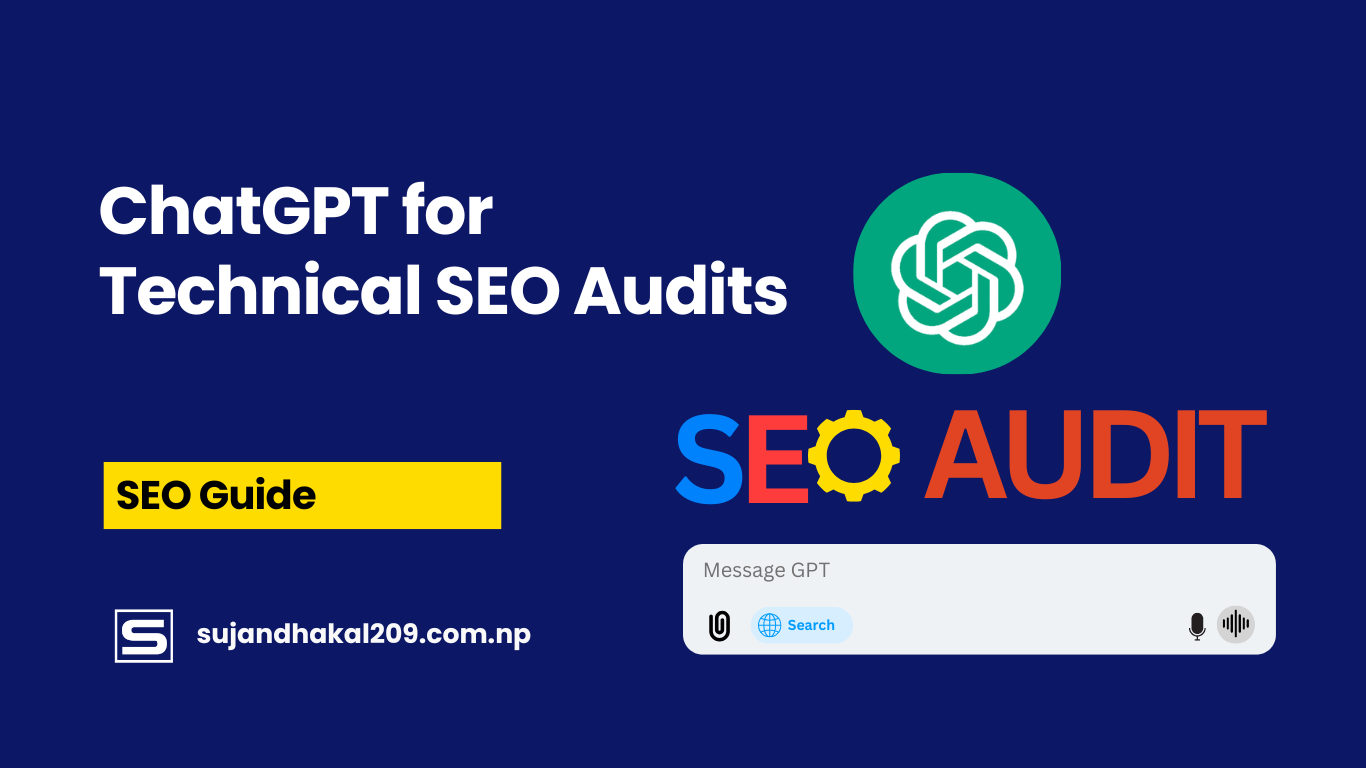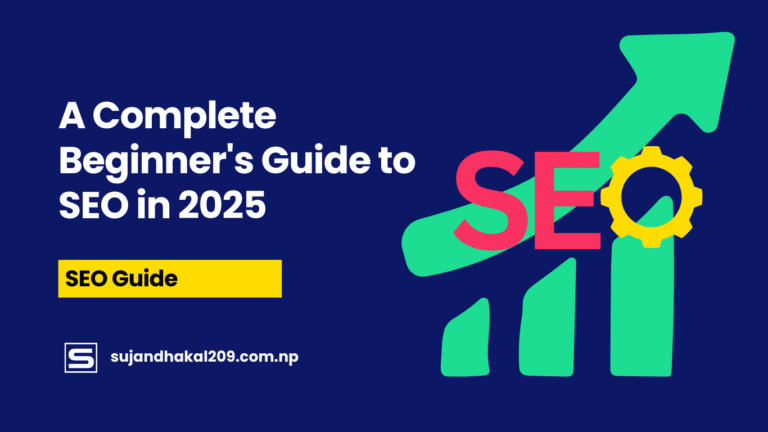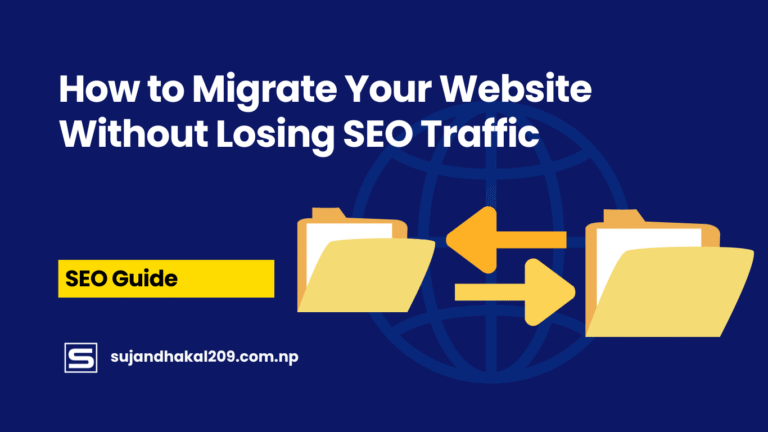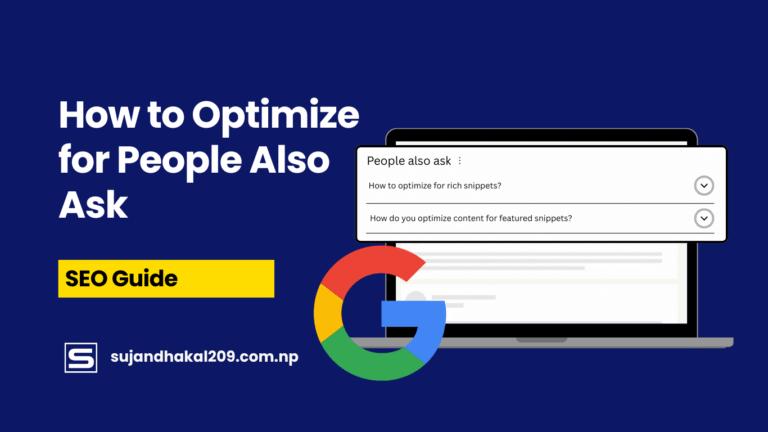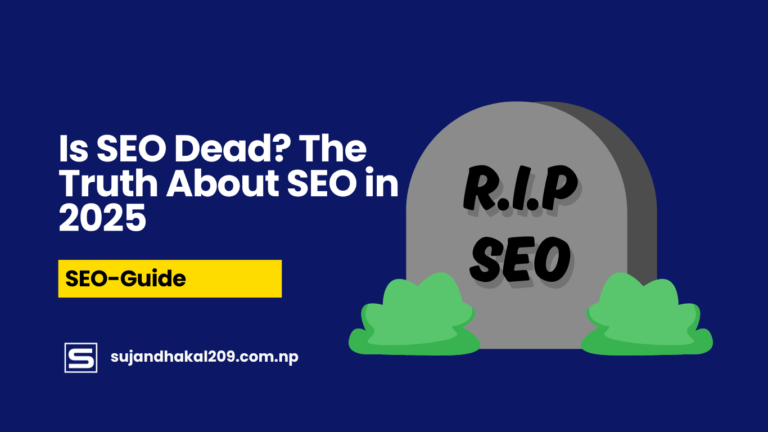Introduction to Technical SEO
What is Technical SEO?
Technical SEO refers to the process of optimizing a website’s infrastructure to help search engines crawl, index, and render your pages more effectively. Unlike content SEO, which focuses on keywords and user intent, technical SEO dives into the code, speed, structure, and hidden aspects of your website that determine how well it performs in search engines. Think of it as tuning the engine of your website so it can race ahead in Google’s results.
In 2025, with search algorithms becoming more sophisticated and user expectations at an all-time high, technical SEO is no longer optional. It’s the foundation of every successful SEO campaign. Whether it’s improving crawlability, fixing broken links, or optimizing your XML sitemap, getting these core elements right means your content has a fair shot at ranking.
Most websites suffer from a slew of hidden issues—redirect chains, unoptimized JavaScript, improper canonical tags, or inconsistent structured data. These issues may not be visible to users, but they can absolutely tank your rankings. The irony is, they’re fixable—but only if you know where to look. That’s where ChatGPT comes in.
Why Technical SEO Matters More Than Ever in 2025
Search engines like Google and Bing are rapidly moving toward semantic understanding and AI-first indexing models. That means your site structure, load speed, mobile responsiveness, and structured data aren’t just optional—they’re foundational. A perfectly written blog post won’t help if Google can’t crawl it effectively or understand its context.
In 2025, Core Web Vitals (Largest Contentful Paint, First Input Delay, and Cumulative Layout Shift) remain high-impact ranking factors. Mobile-first indexing is the norm, and new technologies like IndexNow mean search engines demand real-time optimization. If your site can’t keep up, it’ll get left behind.
That’s exactly where AI tools like ChatGPT can change the game. By streamlining diagnostics and providing optimization suggestions based on massive datasets, ChatGPT helps SEOs stay one step ahead. And the best part? It’s always learning, updating, and adapting—just like the algorithms we’re trying to win over.
The Rise of ChatGPT in SEO Auditing
Why SEOs Are Turning to AI
Let’s be honest—manual SEO audits can be a nightmare. They’re time-consuming, labor-intensive, and often involve stitching together outputs from multiple tools. Enter ChatGPT: a conversational AI that can understand and analyze structured data, web page content, and SEO metrics faster than most human analysts.
AI-powered auditing isn’t about replacing humans; it’s about supercharging them. With ChatGPT, SEOs can automate repetitive tasks like analyzing large-scale log files, checking redirect chains, or identifying crawl anomalies. It doesn’t just save time—it increases accuracy and frees up mental bandwidth for strategy and creativity.
Moreover, as ChatGPT can interact in natural language, it becomes an intuitive assistant. Instead of fiddling with a dozen dashboards, you can simply ask, “What are the top crawl errors on my site?” or “Which pages are blocked in robots.txt?” and get instant answers. That’s not just efficient—it’s revolutionary.
Capabilities of ChatGPT in SEO Workflows
ChatGPT’s true power lies in how versatile and data-savvy it is. Here’s what it can do in your SEO workflow:
- Crawl analysis: Input crawl data from tools like Screaming Frog, and let ChatGPT flag broken links, missing tags, and orphaned pages.
- Page speed suggestions: Provide Lighthouse or PageSpeed Insights reports, and ChatGPT will offer precise, prioritized optimization recommendations.
- Log file interpretation: Upload raw server logs, and ChatGPT can uncover crawling patterns, bot behavior, and indexing gaps.
- Structured data validation: Feed in your page HTML, and it will check for schema errors or enhancements.
- Prompt engineering: Use tailored prompts like “Analyze my canonical tag implementation for these 20 URLs” and get laser-sharp insights.
It doesn’t stop there. With API connections, ChatGPT can be hooked into your audit tools, automating real-time checks. Whether you’re handling a single site or managing SEO for hundreds of domains, it’s a productivity multiplier.
Core Areas Where ChatGPT Excels in SEO Audits
Site Crawling and Error Detection
One of the most time-consuming aspects of technical SEO is identifying issues across large websites. Broken links, duplicate pages, orphaned URLs, and crawl traps can tank your rankings silently. This is where ChatGPT truly shines—it acts like a smart assistant with a sharp eye for detail.
By uploading a CSV export from your crawler (like Screaming Frog or Sitebulb), you can prompt ChatGPT to scan the data for:
- 404 errors and soft 404s
- Redirect chains and loops
- Canonical tag conflicts
- Missing or duplicate title/meta descriptions
- Noindex/nofollow inconsistencies
Instead of spending hours filtering spreadsheets, ChatGPT can summarize and prioritize issues in seconds. For example, you could ask, “Find all URLs with more than 2 redirects,” or “Highlight pages missing H1 tags,” and instantly get a clean list.
Even better, it doesn’t just identify problems—it explains them. If a canonical tag is incorrectly set, ChatGPT will tell you why it’s an issue and suggest how to fix it. This makes it invaluable for both seasoned SEOs and beginners trying to level up their audit game.
Page Speed and Core Web Vitals Optimization
Page speed is no longer just about convenience—it’s a ranking factor. Google’s Core Web Vitals now directly impact where you land in the SERPs. Slow-loading pages frustrate users, increase bounce rates, and reduce conversions. ChatGPT can help diagnose these issues and provide performance-boosting suggestions.
By feeding in performance reports from tools like:
- Google PageSpeed Insights
- Lighthouse
- GTmetrix
You can ask ChatGPT things like:
- “Why is my LCP over 4 seconds?”
- “Suggest fixes for reducing JavaScript execution time.”
- “Which images on this page are not optimized?”
ChatGPT can break down complex terms and suggest specific improvements. For instance, it might recommend lazy loading images, minimizing main-thread work, or using next-gen image formats like WebP. What sets it apart is its ability to tailor recommendations based on the type of site—whether you’re running a blog, a Shopify store, or a custom web app.
And with real-time performance feedback integrated through APIs, ChatGPT can become a continuous performance watchdog—not just a one-time audit tool.
Internal Linking and Crawl Depth Analysis
Internal linking is a cornerstone of technical SEO—and often overlooked. Proper internal links help distribute authority across your site, guide search engine crawlers, and improve user navigation. But when you’re managing a site with thousands of pages, spotting weak link architecture is challenging.
ChatGPT can process your internal linking reports and identify:
- Orphaned pages (no internal links pointing to them)
- Excessively deep pages (buried more than 4-5 clicks from the homepage)
- Unbalanced link equity distribution
- Pages with high bounce rates and low internal link counts
You can prompt it to “List all pages with no inbound internal links” or “Suggest pillar content linking opportunities for these 10 blog posts.” Within seconds, it’ll deliver actionable insights.
The real game-changer? You can pair ChatGPT with Google Analytics or Search Console data. Ask it to “Identify high-performing blog posts that aren’t linked from my homepage,” and it will combine performance metrics with crawl data to suggest internal linking upgrades. That’s strategic SEO at scale.
Schema Markup & Structured Data Evaluation
Search engines love structured data—it helps them understand your content better and offer rich results like product ratings, FAQ accordions, and how-to steps. But even small mistakes in schema markup can prevent these rich results from appearing.
ChatGPT is surprisingly good at evaluating schema. Drop in your page’s HTML or JSON-LD snippet, and it will:
- Validate the schema syntax
- Highlight missing required fields
- Suggest enhancements (like adding
aggregateRating,author, oroffers) - Cross-check against Google’s schema.org standards
It also works proactively. You could say, “Generate a schema for a recipe page with cook time, ingredients, and nutrition facts,” and it will output ready-to-deploy JSON code.
Instead of struggling with Google’s Rich Results Testing Tool or second-guessing your markup, ChatGPT acts like a schema expert in your pocket. It’s especially helpful for e-commerce, real estate, or medical sites where detailed structured data can give you a competitive edge.
How to Use ChatGPT for a Complete SEO Audit
Preparing the Data Input (Logs, URLs, Crawl Data)
Before you can expect magic from ChatGPT, you need to feed it clean, structured data. Think of it like giving a detective the full case file—it can’t find the criminal if you only hand over half the evidence.
Start by gathering:
- Crawl exports from Screaming Frog or Sitebulb
- Google Search Console coverage reports
- PageSpeed or Lighthouse audit reports
- Server log files (raw or parsed)
- A list of URLs you want to audit
Format your files cleanly in CSV or Excel. If you’re using a tool like ChatGPT Plus with file upload capabilities, this part becomes seamless. If not, paste chunks of data directly into the prompt box.
Then, structure your prompt. Don’t just say “Audit my site.” Be specific:
- “Analyze this crawl data and list critical errors.”
- “Find pages with slow LCP and suggest improvements.”
- “Review this robots.txt and identify potential blocks.”
The better your input, the better your output. ChatGPT thrives on precision.
Prompt Engineering: Crafting the Right Questions
Prompt engineering is the secret sauce of using ChatGPT for SEO. Think of prompts like queries in a search engine—vague prompts get vague answers. Sharp prompts yield sharp insights.
Here are some prompt examples tailored for technical audits:
- “Using this crawl report, find all 404 pages linked internally.”
- “Suggest how to reduce CLS issues based on this Lighthouse report.”
- “Generate internal linking recommendations for these URLs.”
- “Compare these two sitemap.xml files and point out inconsistencies.”
The more context you give, the better ChatGPT performs. Don’t hesitate to follow up with clarifying questions—think of it like chatting with a really smart analyst who never sleeps.
Interpreting the AI’s Suggestions Effectively
Using ChatGPT for SEO audits doesn’t just end with getting answers—you need to understand, verify, and act on those insights. This is where human intelligence meets machine output. ChatGPT can give you technically correct suggestions, but it’s your job to interpret them within the context of your site and goals.
Start by categorizing the output:
- Quick fixes: Errors like missing meta descriptions or broken internal links.
- Moderate tasks: Page speed optimizations or minor structured data issues.
- Complex changes: Fixing JavaScript-rendered content, canonical conflicts, or major URL restructuring.
Take each suggestion and consider:
- Is it valid for my CMS or platform?
- Will this change affect UX or conversions?
- Do I have the technical resources to implement it right now?
You can also ask ChatGPT to explain its recommendations in simpler terms or provide implementation instructions for your CMS—like WordPress, Shopify, or Webflow. For instance, “How do I add lazy loading to images in Shopify?” or “Where do I insert structured data in a WordPress blog post?”
The more iterative your workflow with ChatGPT becomes, the more it feels like a real-time SEO partner that grows with your strategy.
Real-World Use Cases & Applications
E-commerce Site Audit with ChatGPT
E-commerce websites are some of the most complex to audit due to large inventories, dynamic content, and frequent updates. With thousands of product pages and filtering URLs, SEO issues often multiply.
ChatGPT can help e-commerce businesses:
- Identify duplicate content caused by URL parameters
- Recommend canonical tags for product variations
- Audit internal search results for crawl traps
- Suggest schema markup for product reviews, availability, and pricing
- Improve category page performance and faceted navigation
Imagine uploading a crawl export and asking ChatGPT: “Which pages on my Shopify store have duplicate meta titles?” It can process that data, isolate problem areas, and even suggest new title templates based on high-performing pages.
Need to bulk-generate meta descriptions for 500 products? ChatGPT can do that too—using product name, category, and key features to create optimized, readable descriptions that save hours of manual work.
SaaS SEO Strategy Optimization
SaaS platforms often have hybrid SEO challenges: blog content, app feature pages, login-gated tools, and support documentation. ChatGPT can assist in every facet of the audit.
Key uses include:
- Analyzing content silos and suggesting internal links between blog posts and product pages
- Auditing robots.txt to ensure feature pages are crawlable
- Evaluating API documentation pages for crawlability
- Creating FAQ schema for support content
- Reviewing page load times for dashboard-heavy pages
If you’re trying to optimize for branded and non-branded keywords, ChatGPT can analyze keyword gaps, review your sitemap structure, and even suggest new landing page topics based on search trends.
For SaaS brands fighting in a competitive space, the ability to execute fast, smart, and scalable audits can make all the difference. With ChatGPT, a single SEO or content marketer can produce results at the level of an agency team.
Local SEO Audit for Small Businesses
Local SEO requires a different lens—NAP consistency, Google Business Profile optimization, localized content, and mobile performance are top priorities. Here’s how ChatGPT steps up:
- Analyze location pages for keyword targeting and schema
- Suggest improvements for mobile load speed
- Review structured data like
LocalBusiness,Address, andOpeningHours - Identify missing reviews or inconsistent citations
- Create geo-specific content ideas for blog or landing pages
Let’s say you’re managing SEO for a multi-location dental clinic. You can input the content and meta data from 10 location pages and ask, “Which pages lack city-specific keyword targeting?” or “Create schema markup for a dental clinic in San Diego.”
ChatGPT will not only audit the pages—it’ll tailor suggestions to your niche, your region, and your goals.
ChatGPT Integration with Leading SEO Tools
ChatGPT + Screaming Frog
Screaming Frog is one of the most powerful SEO crawlers out there, and when paired with ChatGPT, it becomes even more effective. Export your crawl data into a CSV or Excel file and let ChatGPT do the heavy lifting.
Sample workflows:
- “Find all redirect chains from this crawl file.”
- “Which pages have more than one H1?”
- “Summarize crawl depth by content type (blog, product, category).”
With a few prompts, you can turn an overwhelming sheet of crawl data into a prioritized SEO task list.
ChatGPT + Ahrefs/SEMrush
While Ahrefs and SEMrush are more focused on backlinks, keywords, and competitive analysis, their data can be combined with ChatGPT to uncover smarter insights.
Use cases include:
- Analyzing backlink profiles and detecting spammy domains
- Identifying keywords you’re underperforming for
- Finding opportunities for internal linking based on top-performing pages
- Creating keyword clusters from exported SEMrush keyword lists
Simply export reports from these tools and ask ChatGPT to interpret them. Example: “Which of these pages has the most referring domains but lowest organic traffic?”
The result? Smarter, faster optimization strategies based on high-value data.
ChatGPT + Google Search Console
Google Search Console offers a goldmine of insights, but the UI can be overwhelming. ChatGPT helps you mine that data more effectively.
Key prompts:
- “Analyze this coverage report and summarize major issues.”
- “Which pages dropped in clicks this month and why?”
- “Highlight which queries have high impressions but low CTR.”
You can also use it to generate solutions: “Suggest 3 meta title improvements for these low-CTR pages.”
This integration closes the loop between data analysis and action.
Pros and Cons of Using ChatGPT for Technical SEO
Major Advantages
The surge in popularity of ChatGPT for SEO audits isn’t just hype—it’s based on real, tangible benefits. Here are some of the most impactful advantages:
- Speed and Efficiency: What used to take hours—manual checks of 100+ pages, analyzing crawl reports, reviewing structured data—can now be done in minutes.
- Scalability: Whether you’re auditing a 50-page local business site or a 100K-page e-commerce giant, ChatGPT handles volume effortlessly with minimal lag.
- Accessibility: You don’t need to be a tech wizard. With simple, conversational prompts, beginners can get expert-level insights.
- Personalization: Based on the data you provide, ChatGPT can tailor recommendations for your CMS, niche, or region.
- Cost-Effective: For freelancers and small businesses, ChatGPT offers enterprise-level analysis at a fraction of the price of advanced SEO tools or agencies.
- Always-on Support: No need to wait for business hours or IT staff. ChatGPT is available 24/7 to answer SEO questions, troubleshoot errors, or review content.
These advantages make it not just a convenience, but a competitive advantage.
Limitations to Consider
Of course, ChatGPT isn’t flawless. While it’s a powerful assistant, it’s not a full-blown replacement for human oversight or deep technical expertise. Here’s what to watch out for:
- Lack of Real-time Web Crawling: ChatGPT can analyze provided data, but it doesn’t crawl the live web unless integrated with third-party tools.
- Context Blind Spots: It can misinterpret poorly formatted or incomplete data, leading to misleading suggestions.
- Needs Structured Input: Without clearly structured prompts or clean data, the output may vary in quality.
- No Direct API to SEO Tools (Yet): While some hacks and workarounds exist, deep API integration with popular SEO tools is still limited.
- Requires Human Validation: Recommendations—especially ones affecting indexing or site architecture—must be validated by human experts before implementation.
So while ChatGPT is an amazing co-pilot, it’s not your autopilot. It elevates your capabilities but still requires your direction.
Human vs. AI: Should You Rely Fully on ChatGPT?
Let’s settle this debate: can ChatGPT replace human SEOs? The answer is no—and that’s a good thing. The best SEO results come from combining human creativity, intuition, and market understanding with AI’s speed, data handling, and consistency.
Here’s how the ideal synergy looks:
- AI handles data-heavy tasks: audits, log analysis, schema reviews, internal link audits.
- Humans make judgment calls: prioritizing what to fix, aligning with brand goals, creating UX-friendly solutions.
- AI drafts recommendations: meta tags, schema, audit checklists.
- Humans refine and implement: polishing titles for tone, ensuring fixes won’t break the site, testing changes.
AI is your assistant, not your competitor. ChatGPT helps you think faster, work smarter, and scale higher. But it’s your vision, creativity, and empathy that drive SEO success.
Best Practices for AI-Powered SEO Audits
Keeping Up with Algorithm Updates
SEO is a moving target. Google’s algorithms evolve regularly, and technical factors are always shifting. ChatGPT is trained on a vast corpus, but unless updated with new prompts or external data, it may not reflect the very latest ranking factors.
To stay current:
- Pair ChatGPT with the latest documentation from Google, Bing, and schema.org.
- Use timely prompts like: “Summarize Google’s latest Core Update impact on technical SEO.”
- Periodically update your prompt templates to reflect algorithmic trends.
Being proactive here ensures you don’t fall behind.
Ensuring Accuracy in Analysis
Accuracy is everything. Misinterpret one directive, and your rankings—or user experience—could suffer. To boost reliability:
- Always double-check AI recommendations with manual inspection or third-party tools (Screaming Frog, Sitebulb, Ahrefs).
- Use structured prompts. Instead of “Audit this site,” say “List missing meta descriptions in this crawl report.”
- Ask for validation: “Why is this an issue?” or “What risk does this change pose?”
Treat ChatGPT as your consultant—but review its suggestions like a CFO checking an accountant’s work.
Human Validation & Oversight
The best SEO workflows marry AI output with human oversight. A great system looks like this:
- Crawl the site using your favorite tool.
- Export and clean the data.
- Prompt ChatGPT for issue detection.
- Review the suggestions with your SEO strategist or developer.
- Implement only after validation and risk assessment.
- Monitor changes using GSC, analytics, and SERP movement.
This ensures your audits are fast, accurate, and safe to execute. Plus, it builds a learning loop—both for you and for ChatGPT.
Future of Technical SEO with AI Assistants
Looking ahead, AI tools like ChatGPT will become increasingly integrated into the SEO ecosystem. Here’s what’s on the horizon:
- Native Integration with SEO Tools: Imagine ChatGPT directly embedded into Screaming Frog, GSC, or Ahrefs dashboards.
- Voice-based SEO Consultation: Need an audit while driving? Just ask your AI assistant.
- Real-time Audits via API Feeds: Live data pipelines will allow ChatGPT to auto-audit and alert you instantly.
- Custom AI Agents: You’ll be able to train your own SEO bot, fine-tuned to your brand, tools, and workflow.
In short, AI won’t just assist—it will collaborate, create, and optimize alongside you. And ChatGPT is just the beginning.
Conclusion
ChatGPT is not a silver bullet—but it’s the closest thing to an SEO Swiss Army knife we’ve seen in years. From site audits and speed reviews to schema validation and internal linking strategies, it’s revolutionizing how we approach technical SEO.
For solo SEOs, marketers, and even enterprise teams, ChatGPT isn’t just a tool—it’s a teammate. One that’s smart, fast, and always ready to help.
As search engines grow more sophisticated and users more demanding, the blend of human insight with AI precision will define the winners in the SEO game. Don’t get left behind. Start using ChatGPT not just as an audit tool—but as your strategic SEO partner.
FAQs
Can ChatGPT replace SEO professionals?
No. ChatGPT can assist with technical audits, content optimization, and reporting, but human expertise is still needed for strategy, implementation, and business alignment.
How accurate is ChatGPT for technical SEO audits?
Accuracy depends on the quality of the input data and prompt. With clean, structured data and specific questions, ChatGPT delivers highly reliable results—but always validate before implementing.
What data do I need to audit my site with ChatGPT?
You’ll need crawl data (CSV from tools like Screaming Frog), performance reports (Lighthouse), and optionally, server logs or HTML snippets for structured data review.
Is ChatGPT effective for mobile SEO auditing?
Yes, it can analyze mobile-specific issues like mobile usability, viewport settings, and mobile Core Web Vitals—provided the right data is input.
How often should I use ChatGPT for site audits?
It’s wise to run a full audit quarterly, with monthly mini-audits to catch emerging issues. ChatGPT can help automate both schedules efficiently.

